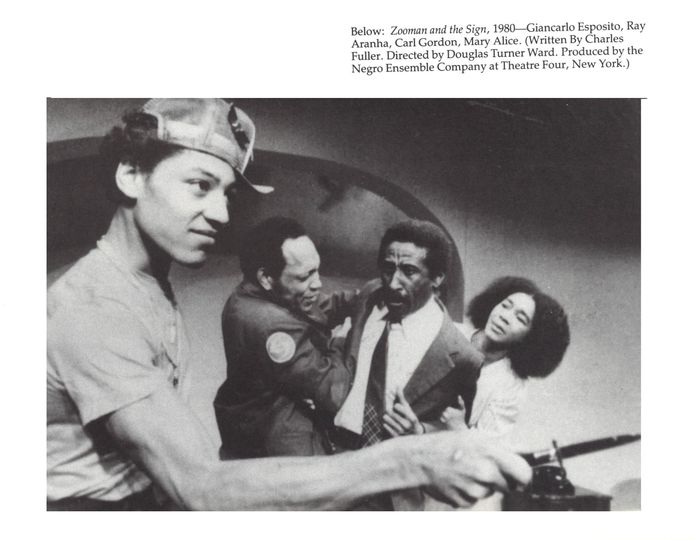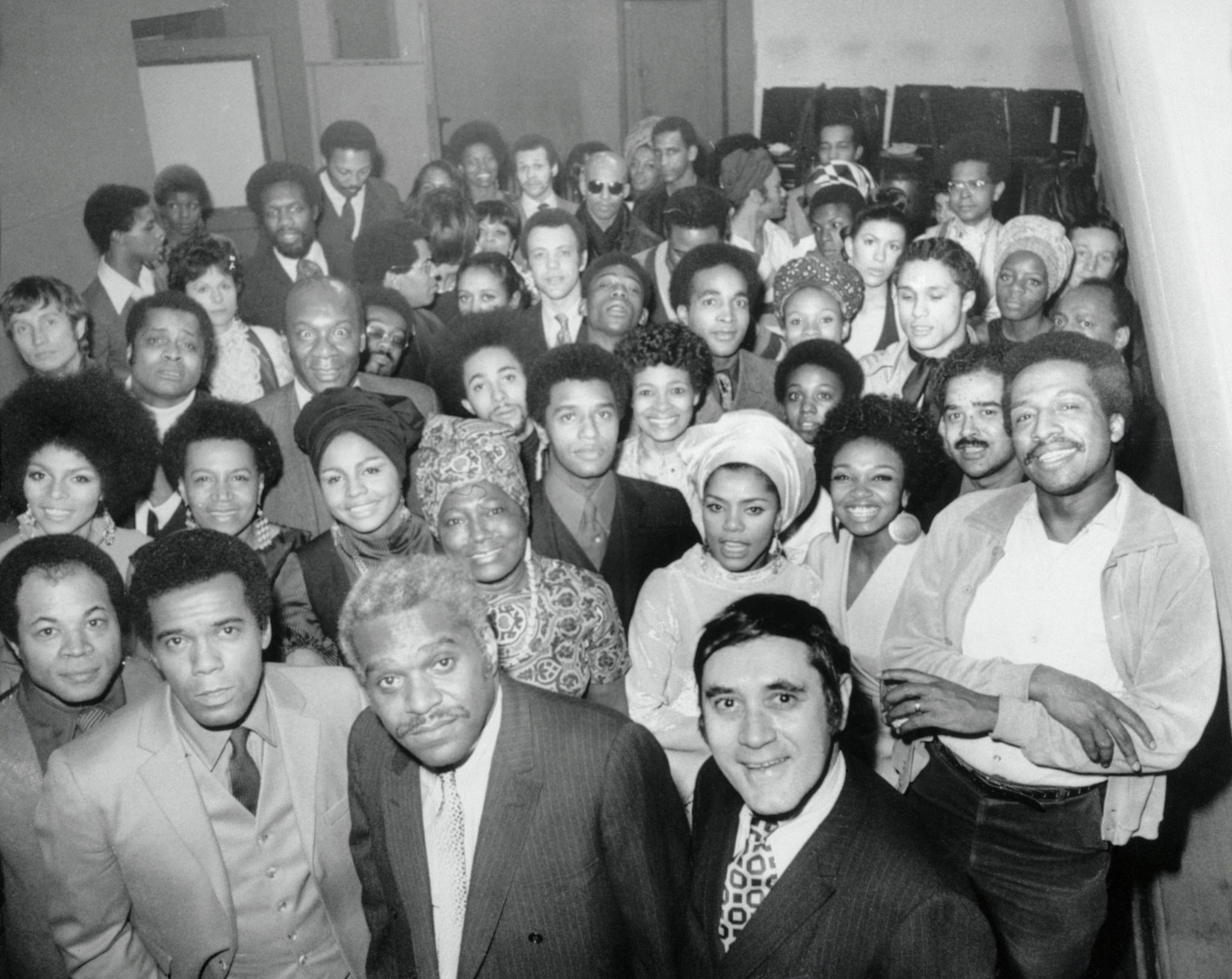*~*
THE NEGRO ENSEMBLE COMPANY

HOW IT ALL STARTED…
[ As told by Robert Hooks, in his own words… ]
Edited by Dale Ricardo Shields
Dear Dale… Hopefully, because you have a ready-made historical platform, you having this ‘accurate’ information might move us forward, toward correcting the persistent, misinformation of the founding of The Negro Ensemble Company.
Peace, Robert
Robert Hooks, The Negro Ensemble Company
And the Actual Sequence of His Causes
That Led to The Birth of the NEC
While “Happy Ending” & “Day of Absence” were not produced by the NEC until the 1969-70 season, MY INDEPENDENT 1965 PRODUCTION OF THEM led to the creation of the NEC in 1967.
THE SEQUENCE
In 1964, I founded The Group Theatre Workshop for young artists. I was running the classes in my apartment, so I enlisting Barbara Ann Teer to assist me. This group of sincere teens also included Hattie Winston, Antonio Fargas, and Daphne Maxwell Reed.
To assuage the curiosity of parents and neighbors regarding the activity in my apartment. In the summer of 1964, I decided to mount a one-night Monday showcase (at The Cherry Lane Theatre where I was then appearing in “Dutchman”). The evening included Gwendolyn Brooks’ “We Real Cool.” I wanted to end the evening with a play. I ask Douglas Turner could I present his short one-act “Happy Ending” featuring my students (rounding out the evening ).
To my eternal surprise somehow Jerry Tallmer, the head theatre reviewer for the NY Post had heard about this showcase and attended the evening. He wrote a glowing review of the young students! He was very impressed with the concept and writing of the play. This gave me the impetus to persuade Douglas to allow me to get the option rights from the White producer who had been unable to raise funds to produce the two incendiaries, excoriating one-acts “Happy Ending” & “Day of Absence”.
I raised the entire budget from just two individuals – Clarence Avant and Al Bell, the founders of Stax Records – making this production THE FIRST PRODUCTION BY A BLACK AUTHOR, BLACK PRODUCER, WITH BLACK MONEY, THAT WAS EVER PRODUCED ON THE NEW YORK STAGE! (It was Juanita Poitier, Sidney’s first wife, who set me up with them.)
Due to the blazing success of MY 1965 production of both Doug’s one-acts mounted at the St. Marks Playhouse (which in 2 years would become the home of the NEC), Doug then became the next anointed Black playwright, (as I was filming Otto Preminger’s “Hurry Sundown” and continued to run the New York production office from the film location). Doug was invited by the New York Times to write an editorial for their Sunday theatre section, the brilliant article “Theatre in America – For Whites Only” (1966). That, in turn, caught the attention of the Ford Foundation’s McNeil Lowry, which prompted him to approach ‘US’ inviting us to write a proposal for “an ideal Black theatre company.”
I am very proud that I presented that evening with my students in 1964, where I introduced Douglas’ Happy Ending because without the addition of his play there would have never been reviewed.
I then assumed the role of the producer, because of Mr. Tammer’s review, presenting both one-acts plays. that production turned the spotlight on The Negro Ensemble Company. My title was Executive Producer. Douglas Turner Ward was the Artistic Director. Gerald Krone was the Administrative Director.
And the three of us then produced ALL the plays from then on ‘together as a company.
*~*
The most venerable institution of the Black Theatre Movement was the Negro Ensemble Company (NEC) founded in New York in 1967. This theatrical production company, initially financed by a three-year grant of $1.2 million from the Ford Foundation, was the brainchild of playwright/actor Douglas Turner Ward. Originally housed at the St. Mark’s Theater, the company moved to Theater Four. Actor Robert Hooks served as executive director, Gerald Krone as administrative director and Douglas Turner Ward as artistic director.

“Zooman and the Sign” was the play, and became a big box office success prior to the stage birth of A Soldier’s Play! In this scene from Zooman are Giancarlo Esposito, Ray Aranah, Carl Gordon, and Mary Alice.
The Negro Ensemble staged more than 100 productions and featured the work of many black playwrights including Nobel Laureates, Wole Soyinka, and Derek Wolcott. Three plays went to Broadway under Ward’s direction: Joseph A. Walker’s Tony Award-winning drama, The River Niger (1973); Leslie Lee’s Obie winner, The First Breeze of Summer (1975); and Samm-Art Williams’s Tony-nominated play, Home (1980). NEC also produced Charles Fuller’s A Soldier’s Play (1981), which won a Pulitzer Prize and was adapted into A Soldier’s Story (1984), a film starring Denzel Washington. The Negro Ensemble Company provided work for a plethora of outstanding African American actors and actresses including Louis Gossett Jr., Charles Brown, Denise Nicholas, Phylicia Rashad, Esther Rolle, Michele Shay, Rosalind Cash, Adolph Ceasar, Frances, and Gloria Foster, Glynn Turman, Giancarlo Esposito, Moses Gunn, and Barbara Montgomery.

Robert Hooks, Douglas Turner Ward, and Gerald Krone (front row from left), the founders of the Negro Ensemble Company, with other members of the company in 1969.Credit…Bettmann, via Getty Images
